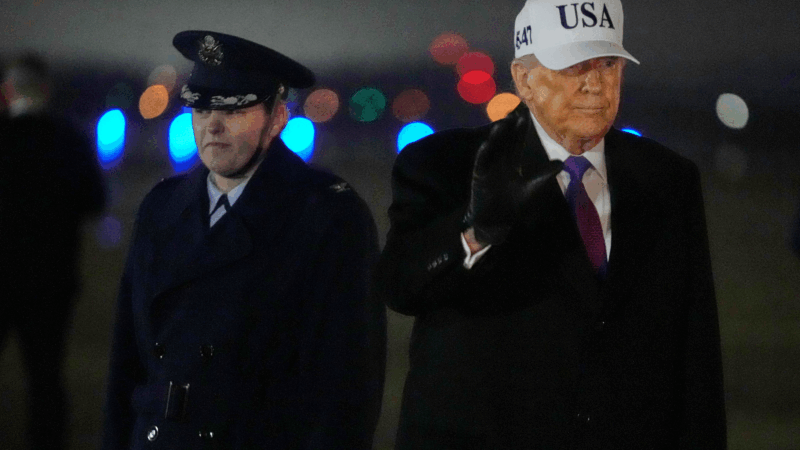Trump Administration Cuts Funding to Anti-White-Supremacy Group
A group that helps people leave white supremacist organizations recently lost a huge federal grant. Officials with Life After Hate say the news was upsetting but not surprising.
The Department of Homeland Security rescinded a $400,000 grant awarded by the Obama Administration to Life After Hate. DHS is refocusing its efforts on combating terrorism, according to a statement. The department awarded $10 million to 26 police and community organizations, none of which specifically counters activities from the so-called alt-right.
Angela King is deputy director of Life After Hate and she’s been spending a lot of time thinking about how history is in some ways repeating itself.
“We’re living right now in an era very similar to pre-Holocaust sentiment and it’s disturbing,” she says.
Kings says she sees similarities between anti-Semitism during WWII and a rise in anti-minority hate crimes today. It’s what fuels her work with Life After Hate. King is a former neo-Nazi. The Southern Poverty Law Center reports there were more than 1,300 hate or bias-related crimes between Nov. 9 and February 7, and King says President Donald Trump’s administration has been too quiet on the issue.
“Silence on certain things is deafening,” King says. “When we have hate crimes and we actually have to nudge our so-called leader into even commenting on them, that’s a problem.”
In the last year, the group has provided support to hundreds, if not thousands of people including those trying to leave far-right groups, case workers, counselors and family members of people who may be involved in the white supremacist movement, she says. Life After Hate has launched a fundraising campaign to help make up for the loss of the grant.
Scientists worry about lasting damage from Potomac sewage spill
Drinking water around the District of Columbia hasn't been contaminated. But scientists say the environmental damage could be severe.
Using saliva to detect disease holds promise, but it’s not perfected yet
Easier than a blood test, saliva tests have the potential to detect cavities, infections and even cancer. But a lack of insurance coverage and other obstacles stand in the way of wider use.
What worked and what didn’t with a cellphone ban at a Kentucky school
Keeping students off their devices is the new norm in many schools. We talked to students and educators at one Kentucky school to see how it's working.
Israeli settlers kill 19-year-old Palestinian American, officials and witnesses say
Israeli settlers in the occupied West Bank shot and killed a Palestinian American man during an attack on a village, the Palestinian Health Ministry said.
Trump says he doesn’t know if aliens are real but directs government to release files on UFOs
President Donald Trump said Thursday that he's directing the Pentagon and other government agencies to release files related to extraterrestrials and UFOs because of "tremendous interest."
Trump warns of ‘bad things’ if Iran doesn’t make a deal, as second U.S. carrier nears Mideast
Iran held annual military drills with Russia on Thursday as a second American aircraft carrier drew closer to the Middle East.







